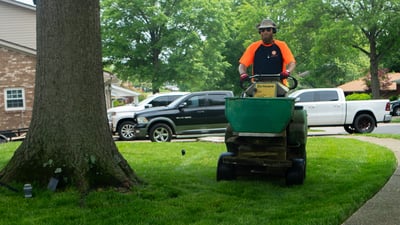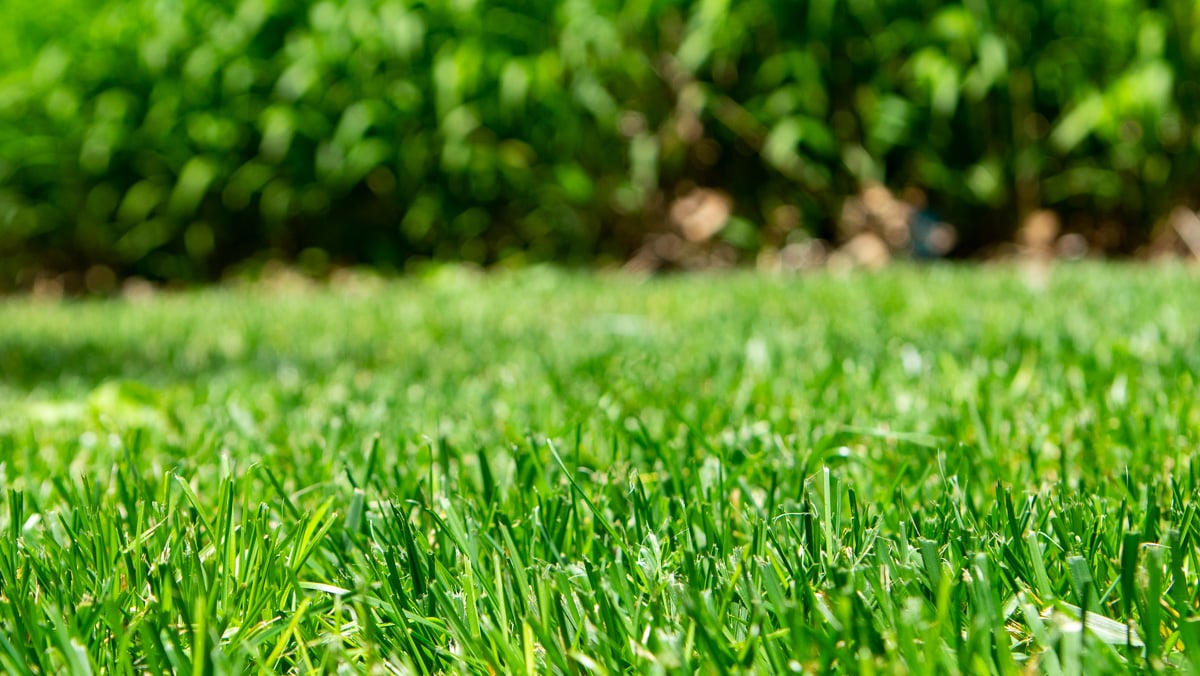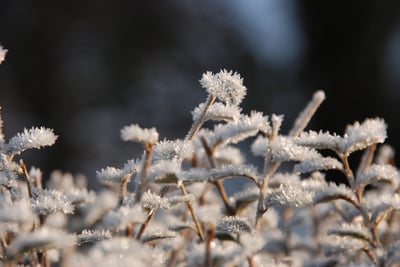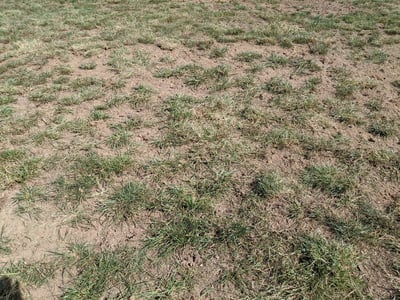


Fall can be one of the busiest seasons for Louisville homeowners — from school schedules and community events to prepping for the holidays. With everything going on, it’s easy to let lawn care slide to the bottom of your weekend to-do list.
But the truth is, what you do for your lawn in fall has a major impact on how it looks next spring. Skipping key tasks now can mean more weeds, thinner grass, and slower green-up when warmer weather returns.
To help you stay on track, we’ve put together this list of 5 essential fall lawn care tasks that will help your lawn stay healthy through winter and come back stronger next season.
Many homeowners assume weed season ends with summer, but fall weeds are still actively growing in Louisville. Ignoring them now gives invasive species like chickweed, ground ivy, and white clover a chance to spread — making spring cleanup even harder.

Fall is actually one of the best times to control weeds. Cool-season varieties are more vulnerable to treatment, and a well-timed application can dramatically reduce weed pressure in the months ahead.
The most effective approach involves using a targeted weed control strategy — not a one-size-fits-all spray. At Limbwalker, we adjust our weed treatments throughout the year based on what’s actively growing and how your lawn is responding.
Pro Tip: Fall weed control doesn’t just clean up your lawn — it helps break the weed cycle by reducing the number of seeds that overwinter and sprout next year.
Leaf cleanup might seem like just a cosmetic task — but it’s actually essential to maintaining your lawn’s health in the fall.
When leaves and yard debris pile up, they can block sunlight and oxygen from reaching the grass beneath. This not only weakens the lawn, but can also create damp, shady conditions where fungus and pests thrive.
Clearing leaves regularly helps your lawn continue to photosynthesize and “breathe” before it enters winter dormancy. If leaf fall is light, you can mow them into the turf — this adds organic matter to your soil and cuts down on cleanup.
For heavier leaf drop, make sure to remove leaves, sticks, and branches so your lawn isn’t smothered.
Pro Tip: Mowing leaves into your lawn is a great option in early fall — but don’t wait until they’re matted down or wet, or you’ll risk damaging the turf.
If your lawn is looking thin, patchy, or tired, fall is the best time to repair it — and power seeding is the most effective way.

Unlike traditional overseeding, power seeding (also called slit or slice seeding) uses a machine to cut rows into the soil and plant grass seed directly. This improves seed-to-soil contact, dramatically increasing germination and leading to a thicker, healthier lawn.
Fall offers the perfect conditions for new seed to thrive in Louisville:
These factors help grass establish strong roots before winter — something that’s harder to achieve with spring seeding.
At Limbwalker, we use a custom blend of premium turf-type tall fescues that are drought- and disease-resistant, giving your lawn the best chance to bounce back beautifully.
Pro Tip: Seeding in spring often conflicts with weed control products. That’s why fall power seeding is both more effective and easier to manage long-term.
The final fertilizer application of the year — often called a “winterizer” — plays a critical role in preparing your lawn for the colder months ahead.

This late-season boost supplies essential nutrients to help your grass build strong roots, store energy, and better withstand winter stress. Even though growth slows above the surface, what’s happening underground is vital to your lawn’s success come spring.
In fact, fall fertilization is one of the most important lawn treatments of the year. It supports deeper root development, helps the lawn recover from summer stress, and lays the foundation for that early spring green-up everyone wants to see.
Pro Tip: Don’t skip this one. Of all the fertilizer applications in Kentucky’s lawn care calendar, late fall delivers the greatest long-term impact.
Just because summer is over doesn’t mean you can put the mower away. In fact, fall is one of the most overlooked seasons for proper lawn mowing in Louisville.
Your grass will keep growing into late fall — sometimes right up until the first frost. That’s why it’s important to stick with a regular mowing schedule, typically once per week through October.
As the season winds down, your final mow becomes especially important. You’ll want to gradually lower your mowing height for that last cut — just enough to prevent long blades from folding over and trapping moisture. This helps reduce the risk of snow mold and other winter diseases.
Pro Tip: Don’t scalp your lawn. A slightly shorter final mow (about 2.5 to 3 inches) is ideal — and still allows your lawn to store energy for winter.
We get it — fall is a busy time. Between school schedules, holiday prep, and weekend commitments, it’s easy to put lawn care on the back burner. But the tasks you complete (or skip) in the fall can make a big difference in how your lawn looks next spring.
At Limbwalker, we offer comprehensive lawn care programs that include expert weed control, seasonal fertilization, and fall power seeding — so you don’t have to worry about timing, products, or results.
Plus, our local lawn care team knows exactly what your yard needs during the changing seasons in Louisville.
Want a thicker, greener lawn next spring?
Request your quote today and we’ll handle the heavy lifting — so you can enjoy your lawn without the stress.



